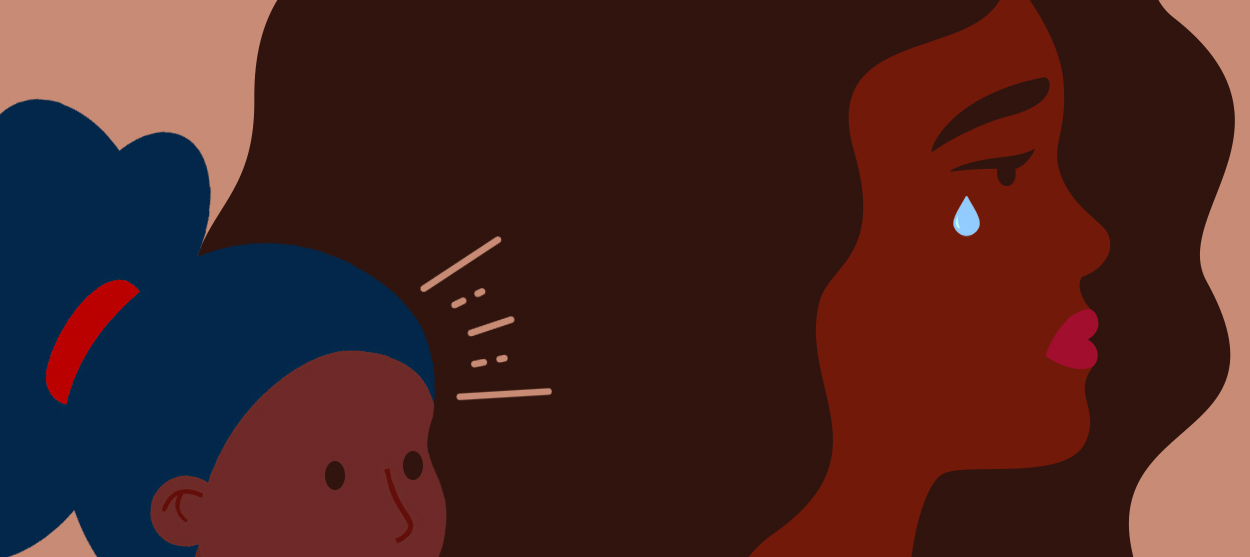The week's best parenting advice: April 13, 2021
Crying in front of kids, how to deal with bad grades, and more


A free daily email with the biggest news stories of the day – and the best features from TheWeek.com
You are now subscribed
Your newsletter sign-up was successful
1. Cue the water works
Should parents cry in front of their kids? By all means, says Rachel Altvater, a Washington-area psychologist specializing in child and adolescent mental health. "We want to normalize sadness and disappointment for our children. Crying is actually really healthy for our bodies because [the stress hormone] cortisol is released in our tears," she tells The Washington Post. It's especially important for fathers to be open about their emotions in front of their sons, because this challenges the cultural message that boys have to be tough. Plus, hiding one's emotions in an effort to project strength or stoicism could backfire. Kids, after all, are very perceptive. "Not showing your unapologetic, authentic self can make you untrustworthy as a parent," Altvater says.
2. How to deal with bad grades
We all want our kids to do well in school, but inevitably, there will be times when they bomb a test or fail an assignment. When that happens, avoid overreacting, says Cristina Margolis at PopSugar. Your kid probably already feels bad, and doesn't need you to pile on. Instead, "approach the situation with curiosity," writes Meghan Moravcik Walbert at Lifehacker. Do they know why their score was so low? If not, ask their teacher for insight. If the bad grades are becoming a habit, make a plan to help them improve. This may look like hiring a tutor or reassessing study habits, Moravcik Walbert writes. And avoid comparing your child to others, which could damage their self-esteem. Finally, don't go crazy over the occasional low score. After all, "a few bad grades are unlikely to haunt us for the rest of our lives," Moravcik Walbert says.
The Week
Escape your echo chamber. Get the facts behind the news, plus analysis from multiple perspectives.

Sign up for The Week's Free Newsletters
From our morning news briefing to a weekly Good News Newsletter, get the best of The Week delivered directly to your inbox.
From our morning news briefing to a weekly Good News Newsletter, get the best of The Week delivered directly to your inbox.
3. No hitting
What's the appropriate way to respond when a toddler is aggressive? Patrick A. Coleman at Fatherly recommends giving "immediate feedback," then redirecting. "Say 'no' right away, then give them something else to do with their hands. If they bite, give them something appropriate to bite on." In the interim, praise non-violent reactions, like dealing with frustration by walking away, finding an adult, or taking a deep breath. "Also, make it clear what you're praising them for," Coleman writes. Approach the situation with empathy and compassion. "Your toddler isn't hitting because they are a bad kid," Coleman says. "They are hitting because they are toddlers. And as they develop better ways to express themselves the hitting will probably stop."
4. Depression in dads
The transition to parenthood can be jarring and difficult. "Despite those changes happening for both men and women, not much is known about the prevalence of anxiety among new fathers," says Colorado School of Public Health professor Jenn Leiferman, author of a new study suggesting anxiety among new fathers is higher than previously known. The study, published in the Journal of Psychosomatic Obstetrics & Gynecology, estimates that roughly 11 percent of men experience parental anxiety during the first year after their baby is born. That's much higher than the roughly 4 percent the World Health Organization estimates for men overall. "The prevalence of anxiety and depression among men is talked about less as a society, even though research shows men are more likely to commit suicide or abuse alcohol than women," says Leiferman. "It's important that we create more transparency around men's mental health issues. Our hope is by creating awareness, we can help people get help earlier when needed."
A free daily email with the biggest news stories of the day – and the best features from TheWeek.com
NeuroscienceNews Journal of Psychosomatic Obstetrics & Gynecology
5. Back to sleep
Since the 1990s, health experts have recommended that parents put their infant babies to sleep on their backs as a way of reducing the risks of SIDS — or sudden infant death syndrome — "based on a combination of small scale studies," writes Emily Oster, author of Cribsheet. Now, new data analysis "strongly supports the back sleeping recommendation," she writes. The researchers examined SIDS deaths in Denmark before and after December 1991, when the back-sleeping guidelines were implemented and encouraged by home nurses that visit new parents in the first year after a baby is born. "What you see here is the sharp drop in SIDS mortality rate after December 1991," Oster writes. "The drop amounts to, on average, a decrease of 11 SIDS deaths per 10,000 births. … Based on the existing evidence, you should already have been putting infants on their back to sleep. This new data should further convince you that was the right thing to do."
Jessica Hullinger is a writer and former deputy editor of The Week Digital. Originally from the American Midwest, she completed a degree in journalism at Indiana University Bloomington before relocating to New York City, where she pursued a career in media. After joining The Week as an intern in 2010, she served as the title’s audience development manager, senior editor and deputy editor, as well as a regular guest on “The Week Unwrapped” podcast. Her writing has featured in other publications including Popular Science, Fast Company, Fortune, and Self magazine, and she loves covering science and climate-related issues.
